Systems Design Engineer

Kepler Communications
This job is no longer accepting applications
See open jobs at Kepler Communications.See open jobs similar to "Systems Design Engineer" Techstars.Responsibilities:
- Create and use model-based approaches to scope technical solutions across the spacecraft platform and space products.
- Lead and conduct engineering trades and technical budgets
- Conduct coverage and reliability analysis and flow the results into the various hardware and software designs required for the system.
- Deep dive in technical niches to support or lead new product designs.
- Work closely with other cross-functional engineering teams including RF, mechanical, software, and FPGA to develop full product solutions.
- Work closely with teams of subject matter experts from diverse fields to iterate on and for the final spacecraft.
- Develop and manage key program documentation and verification structures (requirements, ICDs, ConOps).
- Troubleshoot system behavior anomalies, determine root cause analysis and provide technical guidance to steer the team towards resolution.
- Assist in system road-mapping and conduct feasibility studies and contribute to proposals for other business units.
- Support prototyping, production, assembly, integration and testing of systems and subsystems.
Requirements:
- Bachelor’s degree in a relevant field (electrical, mechanical, aerospace engineering).
- 5+ years of relevant experience within a systems engineering environment.
- Strong understanding of aerospace systems and engineering fundamentals.
- Hands-on environmental testing (vibration, thermal, shock or thermal vacuum) or electromagnetic interference (EMI) testing experience.
- Ability to distil complex problems to fundamentals to solve with analysis, similarity, or creativity.
- Ability to read and decipher highly technical data, and conduct trade-offs for competing requirements.
- Experience with qualification and acceptance testing of new designs.
- Experience creating or using models and/or simulation software.
Bonus Points:
- Strong understanding of the space environment and orbit mechanics.
- Master’s degree in relevant field (electrical, mechanical, industrial, aerospace engineering) or strong academic/professional project experience.
- Solid understanding of the product development lifecycle process, including analysis and design, development tools and technologies, release and version control, contemporary testing methodologies and deployment management.
- Experience taking a product from the concept phase through to prototyping, launch, and operations.
- Experience developing in C/C++ or Python.
- A good foundation in spacecraft attitude dynamics and control algorithms, with emphasis on practical application of knowledge.
- Experience with mission and orbit modelling and simulation.
- Experience developing CAD for complex assemblies.
This job is no longer accepting applications
See open jobs at Kepler Communications.See open jobs similar to "Systems Design Engineer" Techstars.


